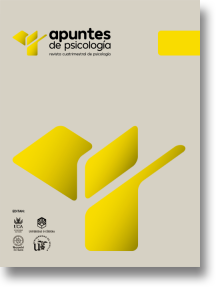Self-efficacy as a moderator in the occupational stress process
DOI:
https://doi.org/10.55414/pvksg810Keywords:
Self-efficacy, general self-efficacy, professional self-efficacy, occupational stressAbstract
This paper analyses the self-efficacy as a moderator in the occupational stress process. Specifically it is analyzing the complementarily between two self-efficacy measures: the generalised and the specific at work. The initial hypothesis is that specific self-efficacy will moderate more stress-strain relationship than the generalised self-efficacy. Based on data collected from 140 workers, who use new technology in theirjobs, we have found that the self-efficacy moderates the relationship stress-strain in general, in the sense that low levels of self-efficacy are related to high levels of occupational stress. The results of hierarchical multiple regression analyses show that both general and professional self-efficacy are complementary as a moderators in the stress processes, depending on the specific strain studied. However, it is found that professional self-efficacy has more iteration effects. Concretely, it is found that the individuals with low levels of generalised self-efficacy express more emotional exhaustion when is higher his/her autonomy; while individuals with low levels of professional self-efficacy show greater cynicism when the routine and the role conflict are high and who have low levels of organizational commitment when the level of role conflict is high. The increase of stressors it is not associated with strain for workers with high levels of self-efficacy. Finally, limitations of the study and implications of these findings are discussed.
Downloads
References
.
Downloads
Published
Issue
Section
License
Copyright (c) 2022 APUNTES DE PSICOLOGÍA

This work is licensed under a Creative Commons Attribution-NonCommercial-NoDerivatives 4.0 International License.


















